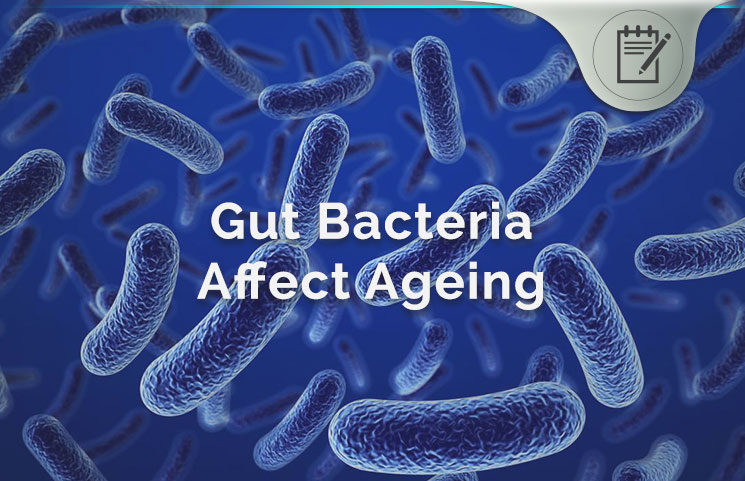The turquoise killifish also known as Nothobranchius furzeri like many other living creatures struggles with signs of old age such as decline in mental faculties, decline in motor skills and loss of pigmentation. The effects that intestinal microbiota have on both lifespan and aging has extensively been studied by reputable researchers who work at the Max Planck Institute for Biology of Aging located in Cologne.
Research findings strongly indicate that older animals tend to remain active and live for longer duration's, but only if they successfully receive intestinal bacteria from younger members of the same species. These findings strongly suggest that aging of any organism is greatly affected by microorganisms inside the gut.
Scope Of Research
Physical decline significantly sets in when the turquoise killifish is not more than a few months old. The ideal model of an organism for the purpose of the aging research is the African fish. This is because it is said to undergo each and every developmental stage (i.e. from hatching all the way to dying) at a considerably high speed.
The brief lifespan associated with the African fish is only comparable to the fruit fly Drosophila and the nematode worm C.elegans, both of which researchers are studying for any signs of aging. Contrary to both animals, the killifish is a vertebrate and is therefore a closer relative to human beings than worms and insects. This also indicates that it would take scientists a very short time to obtain information from this type of fish vs. very many years to do the same from other types of vertebrates.
There is a significant similarity in both the composition and diversity of the gut microbiota in humans and that found in the turquoise killifish. Intestinal microorganisms have a profound effect on the immune system, the metabolism and even the absorption of food.
In human beings, aging normally has an effect on the composition of the microbial community. This is because several bacterial species guarantee a healthy gut during young age but the bacterial diversity decreases in old age. Furthermore, there tends to be increased proportions of pathogens contained in the existing gut bacteria during old age.
A good number of killifish that are aged 9.5 weeks were treated with antibiotics by the scientists working in tandem with Dario Riccardo Valenzano at the reputable Max Planck Institute situated in Cologne so as to clear out all their intestinal flora. These middle-aged animals were then exposed to the intestinal contents belonging to younger killifish aged 6 weeks inside an aquarium.

The mere taste of the particles swimming around the animals allowed them to successfully absorb the beneficial gut bacteria found in the fecal remains that were swimming in the aquarium’s water. This method allowed the successful transplant of the bacteria from young killifish into older killifish and their consequent colonization of the gut.
It was observed that older killifish which received the intestinal microbiota from the younger members of the species benefited in two major ways i.e. they were able to live considerably longer than their counterparts who were not exposed to the young killifish’s microbiota and were as agile as the young killifish from whom the bacteria was sourced.
Currently, more research studies ought to be conducted on the exact effect that the microbes have on longevity. Gut microbiota can successfully counter the reduced efficacy that an aging immune system experiences with regard to offering protection to the microorganisms inside the intestines.
Furthermore, the gut microbiota found in young killifish prevents inflammation and also supports the immune system. Dario Riccardo Valenzano believes that gut bacteria can ultimately promote better health and longer life expectancy.
All in all, the research established that the natural microbial gut community belonging to young individuals has the ability of causally inducing beneficial systemic effects that are long lasting and can result in a life span extension in vertebrate models.
Diversity
There is sufficient scientific evidence which indicates that the loss of the gut microbiota diversity has a probability of occurring and that it negatively affects a person’s aging process. This is because the loss of diversity in the main microbiota groups is related to reduced cognitive performance and increased frailty.
Importance
In addition to positively affecting the aging process, the gut microbiota has a number of benefits that include the following:
- It helps in the proper maintenance of the host health.
- It provides energy to the human body.
- It provides nutrients to the human body.
- It offers protection against harmful organisms that may invade the human body.
Properties
The intestinal microbiota of both animals and human beings is considered to be a vital determinant of health. This is mainly because it has useful properties that are able to affect the availability of bioactives and nutrients from the diet, restrict access of pathogen to the intestinal epithelium, regulate barrier function and program the innate immune system.
The importance of the intestinal microbiota’s properties increases tenfold when there is advancement into old age by the host animal.
Bacteria Changes
It is important to know that bacteria changes in the gut can either be positive or negative in nature. Negative changes in the gut bacteria is strongly associated with several chronic conditions such as certain cancers and inflammatory bowel disease.
On the other hand, positive changes in the gut bacteria help to slow down the aging process. This is why it is recommended for people to increase the amount of healthy gut bacteria.
Gut Bacteria Affects Ageing Conclusion
Gut microbiota has great potential as it positively affects health and its relevance is particularly with the older individuals in society. These microbiotas effectively modulate all aging-related changes in cognitive function, sarcopaenia and innate immunity. These are all elements of frailty which the beneficial gut microbiota counters. The health of diet-microbiota should be viewed in a much broader context of lifestyle and genetic changes which accompany the aging process.
In addition, it is important to keep a healthy gut environment and this is done through avoiding inflammatory foods and eating the right ones like dark and leafy greens, pastured yogurt, naturally fermented foods and organic food.









